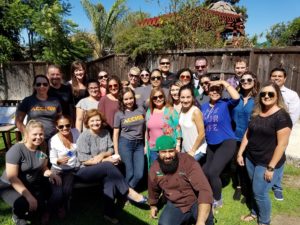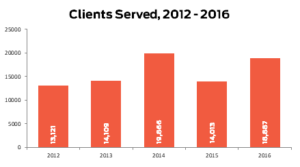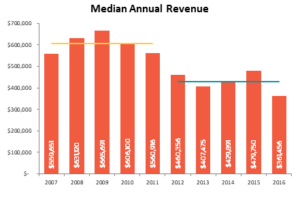 CAMEO partners with FIELD at the Aspen Institute to conduct a census of California’s microbusiness programs using the microTracker platform.
CAMEO partners with FIELD at the Aspen Institute to conduct a census of California’s microbusiness programs using the microTracker platform.
CAMEO members that fill out the Census by the end of October will receive $100 toward lunch for their staff. Accion San Diego took their entire staff to lunch. Email Andrew when you’ve completed your survey for your ‘free lunch’ as well as help on filling out the Census. Andrew can also help you and your organization complete the survey.
To get an idea of what information we glean from the microTracker census, download our in-depth analysis of last year’s census data, which was recently published. You’ll find a lot of interesting information about the state of the CAMEO network and the overall trend of the micro sector in California.
2016 was a mixed year for CAMEO members, with improvements in some areas and declines in others. Median revenue continues its ten-year decline, with the median CAMEO member receiving almost $200,000 less in revenue than in 2007. The majority of member funding comes from government agencies, with 52% of funders named by survey respondents coming from local, state, or national agencies. Yet, the services are not falling proportionally, which is some consolation. The drop in funding is partly due to the loss of the influx of money due to the recovery money during the Great Recession. Some of what you’ll find in the in-depth report:
 1. The number of clients served grew by 35% over 2015 and is 18% over the five-year average. The number of businesses served declined by 19% to 15,545, with the median member serving only half as many businesses in 2016 as in 2014.
1. The number of clients served grew by 35% over 2015 and is 18% over the five-year average. The number of businesses served declined by 19% to 15,545, with the median member serving only half as many businesses in 2016 as in 2014.
2. Lending continues to grow, with CAMEO members making more than twice as many loans in 2016 as they did in 2012, and lending 32 million more dollars – a rise of 179%. Most lenders reported a loss rate of 5% or under, and the majority of borrowers were paying on time.
3. Business development service recipients are down 26.7% from 2015, and hours are down 35.7%. Both measures are below the five-year average. The average client received 6 hours of business development services, down from ten hours in 2012.
As we mentioned, the 2018 Microenterprise Census is currently collecting data. You rely on CAMEO for advocacy. We rely on you for your data. This data fuels our advocacy and supports our members at the state and national level. The better data we have, the stronger our case is, and the easier it is to express the vital role MDOs play in the small business sector. For example, after many years of knocking on doors in Sacramento, we were successful in securing a $23 million state investment in small business development. That was because we were able to show the value of your work. In addition, the Census helps your organization to:
- Organize your data to present to your Board, funders, and supporters. MicroTracker uses standardized data definitions to answer the most common questions people have about your microbusiness program.
- Raise your profile and manage valuable performance metrics from the number of microloans disbursed to cost per client. Use this to sharpen and strengthen your program.
- Enjoy a free lunch on CAMEO!

